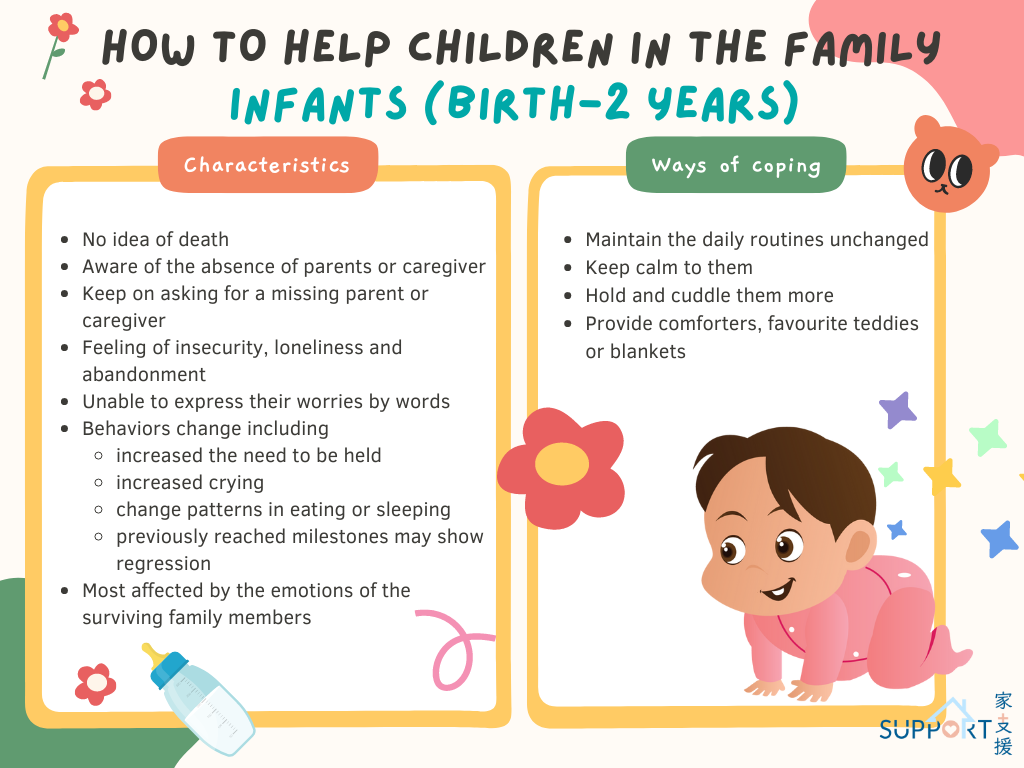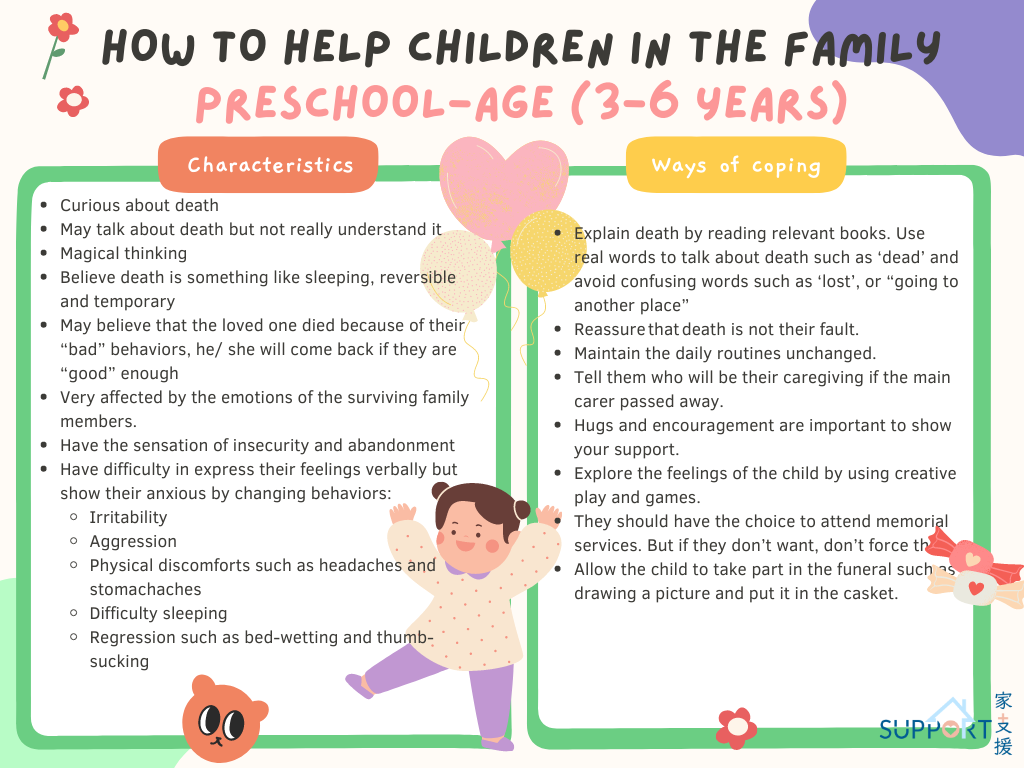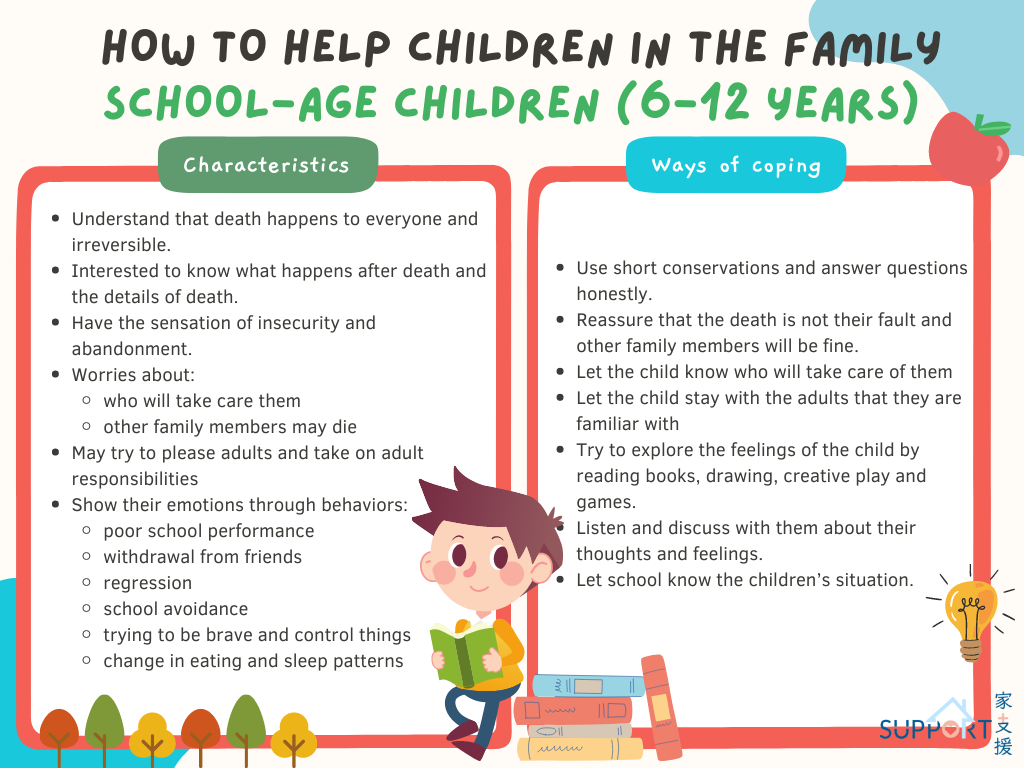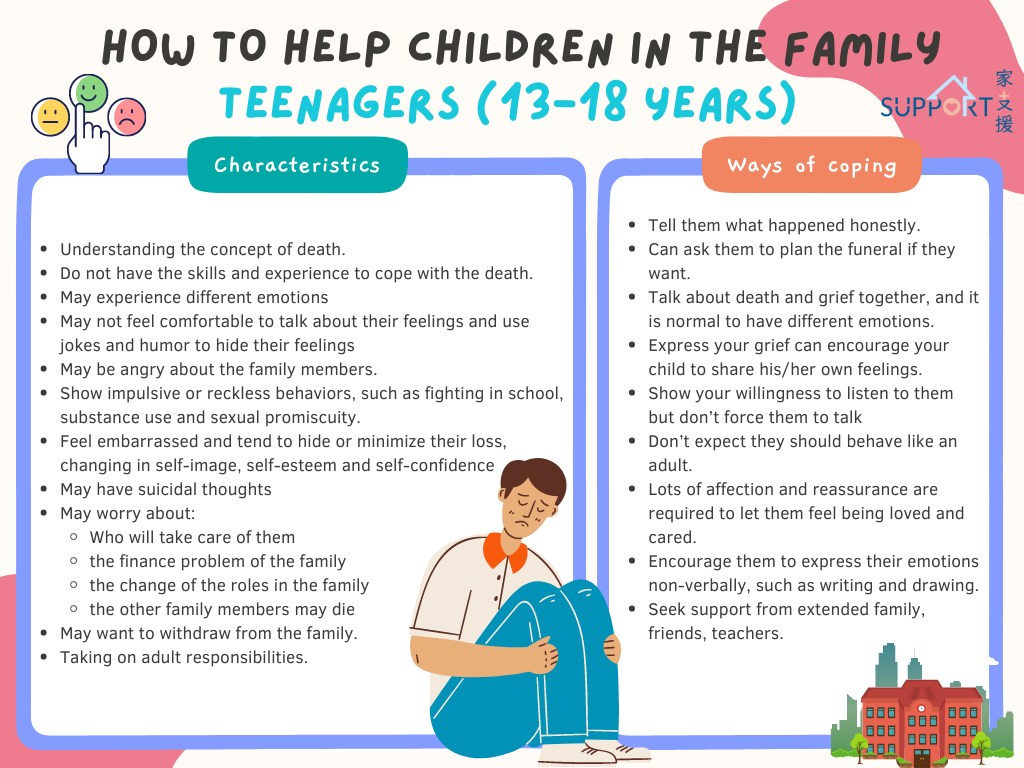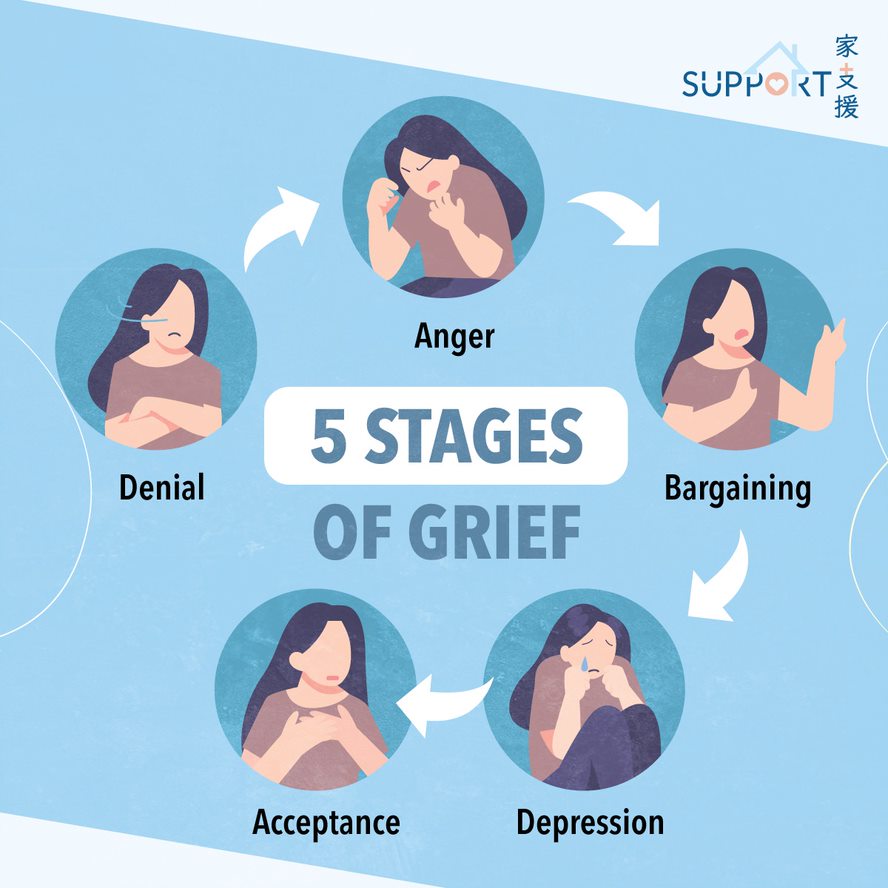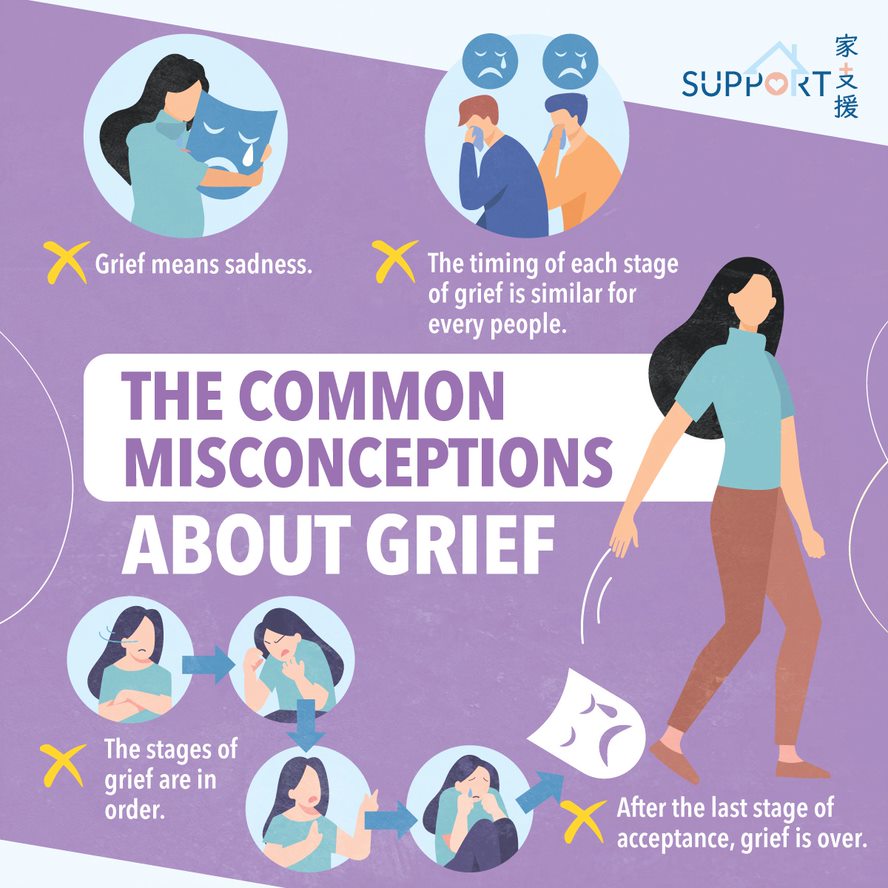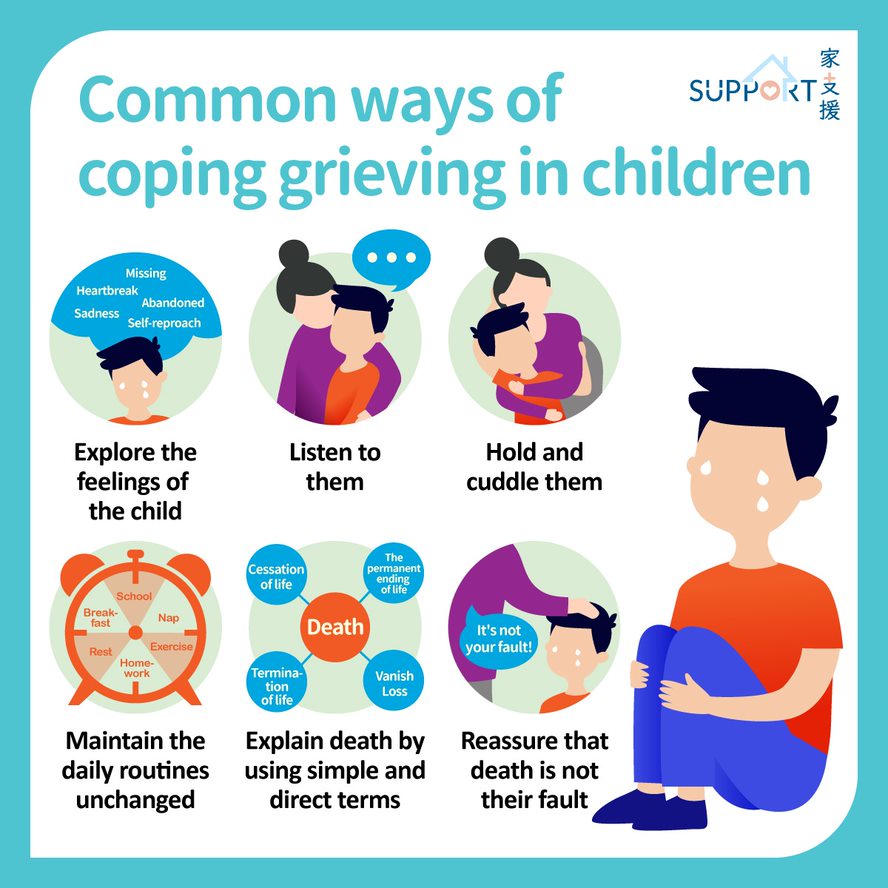
It is common not to tell the truth of death of the loved one to the children. We believe that knowing the truth of death will hurt the children. However, children may have lots of imagination about the “missing person”. They may think that the death is due to their misbehaviors. The imagination can be more frightening to the children. Without appropriate sharing and explanation, the guilty, anxiety, insecurity and fear cannot be handled well. Grieving is a process of expressing feelings that leads to healing.
Depending on the ages of the children, they show their grief in different ways. They may show their sadness for a short period and then have joyful time later. If the child had a very close relationship to the person who died, he/ she undergoes an intense loss. The child may not show you how pain he/she is verbally but surely, the pain exists. Especially when they grow up, they will re-experience the pain again. This is commonly observed during certain milestones in life, such as graduation from college or getting married.
It is important to help children understand death and let them express their feeling in their way. The understanding, emotion expression and the behavior vary according to their age, personality, previous experiences and support from family members. Remember the characteristic of children from each stage may overlap.
